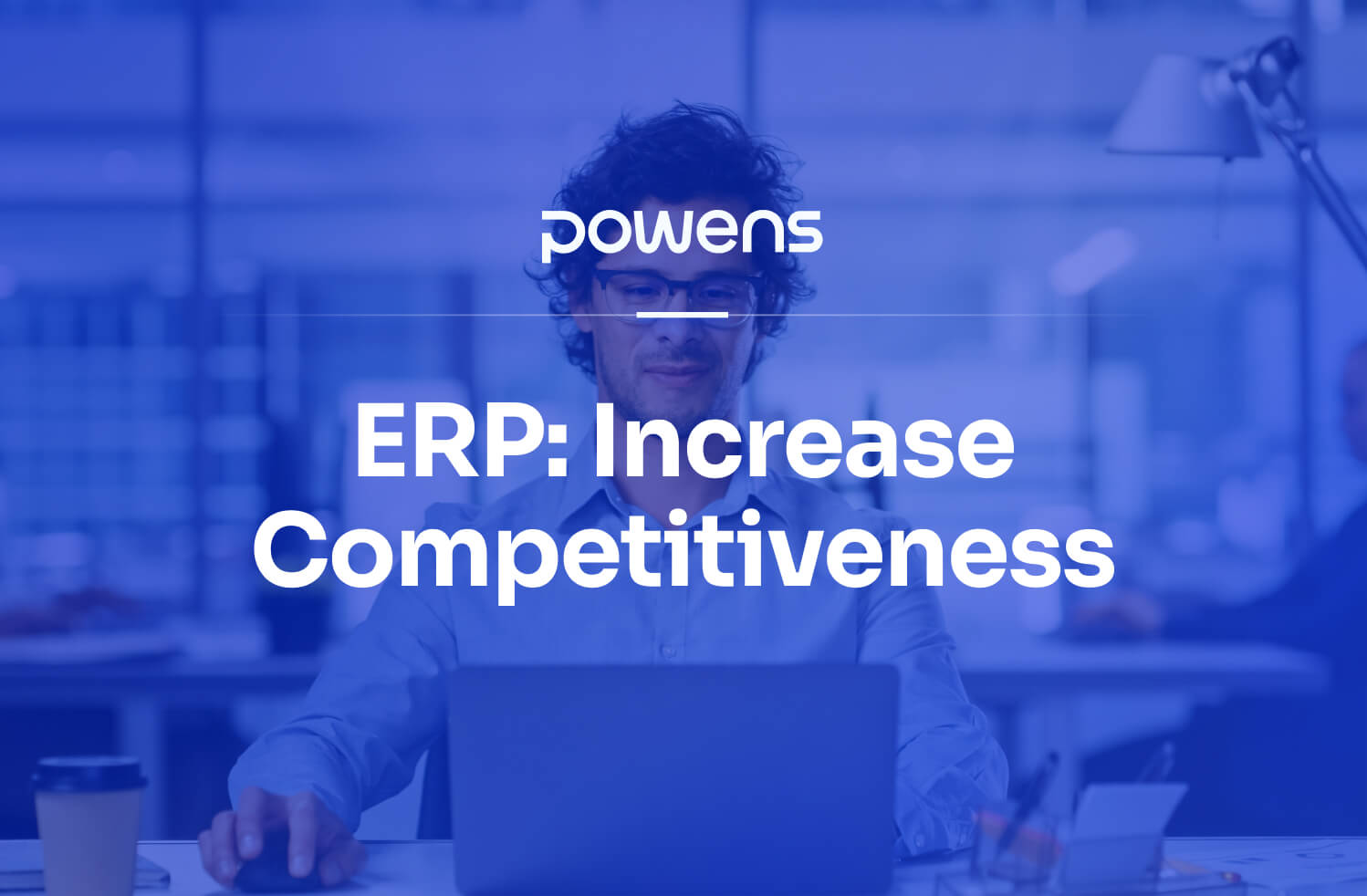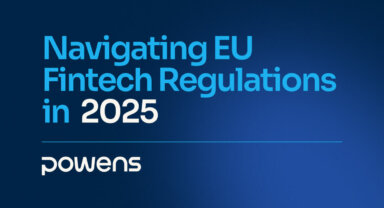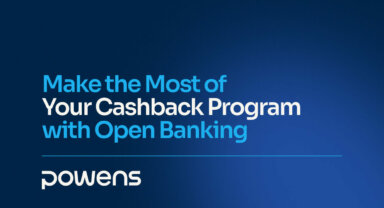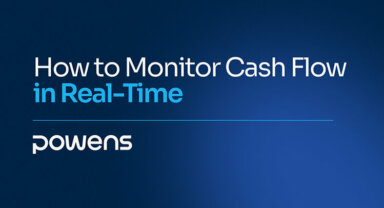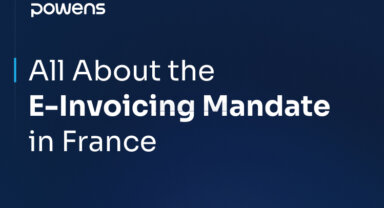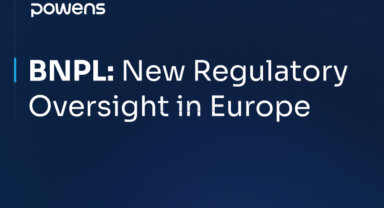ERP: Increase Competitiveness Through Efficiency
The need to stay competitive in business goes without question. Moreover, remaining competitive most often requires efficient and effective management of resources, processes, and data. Lately, Enterprise Resource Planning (ERP) systems have emerged as indispensable tools for organizations seeking to streamline their operations, enhance decision-making, and adapt to ever-changing market dynamics. Let’s take a look at the world of ERP systems and how Powens is at the forefront of this movement. We’ll explore what ERP is, how it works, its benefits, and what the superpowers of Powens can do.
What is ERP?
ERP is a comprehensive and integrated software solution designed to help organizations manage various facets of their business operations. ERP systems provide a centralized platform for different departments to share data and information seamlessly, allowing for better coordination, control, and visibility across the entire organization.
At its core, an ERP system acts as a type of digital “nervous system” for an organization. It facilitates the flow of information between various business functions. These functions can include finance, human resources, manufacturing, supply chain management, customer relationship management (CRM), and more. ERP systems enable companies to automate and streamline their business processes, reducing manual effort and minimizing errors.
So, how does ERP work?
ERP systems function by collecting, storing, and processing data from different departments and making it accessible to authorized users. Here’s a simplified overview of how an ERP system works.
Data Collection: ERP systems gather data from various sources within the organization, such as sales, procurement, production, inventory, and HR. This data can be entered manually or generated automatically through sensors, barcodes, or other data-capturing devices.
Data Integration: The collected data is integrated into a central database, where it can be accessed by different departments. Integration ensures that data is consistent and up-to-date across the organization.
Process Automation: ERP systems include pre-configured workflows and business rules that automate routine tasks and processes. For example, an ERP system can automatically generate purchase orders when inventory levels fall below a certain threshold.
Real-Time Reporting: Users can access real-time reports and dashboards that provide insights into key performance indicators (KPIs) and other critical data. This enables faster and data-driven decision-making.
Collaboration: ERP systems often include collaboration tools that allow employees to communicate and work together more effectively. For example, employees can use the system to request leave, submit expense reports, or collaborate on projects.
Customization: Many ERP systems can be customized to meet the specific needs of an organization. This may involve configuring workflows, adding new modules, or integrating with other software systems.
What are the benefits of ERP?
Implementing an ERP system can bring a wide range of benefits to organizations of all sizes and industries. Some of the key advantages include:
Improved Efficiency: ERP systems automate repetitive tasks and streamline business processes, reducing manual effort and the risk of errors.
Enhanced Productivity: With access to real-time data and reports, employees can make more informed decisions and work more efficiently.
Cost Savings: ERP systems help reduce operational costs by optimizing inventory management, procurement, and production processes.
Better Decision-Making: Timely and accurate data allows managers to make informed decisions, adapt to market changes, and identify growth opportunities.
Competitive Advantage: Organizations with ERP systems are often more agile and responsive to market trends, giving them a competitive edge.
Scalability: ERP systems can grow with your organization, accommodating increased data volumes and additional users as needed.
Regulatory Compliance: Many ERP systems include features to help organizations meet industry-specific regulations and compliance requirements.
How does Powens provide ERP?
Our mission at Powens has been to expand our product portfolio to provide our customers with a total package of Open Finance tools. This includes streamlining common processes, going beyond payments (PIS), and improving data aggregation. All of the above provides the efficiency that companies need to remain competitive.
The Powens advantage in ERP is clear:
Automated bank reconciliation
Our solutions automate bookkeeping, pre-accounting, and reconciliation. Collect data at the source to save time and reduce errors with no need to rely on legacy data exchange or manual downloads. Automated processes are essential to efficiency. Open banking with Powens can automate the import of data from customers’ bank accounts to accounting software, eliminating the need for manual uploads and reducing errors. This both saves time and improves overall customer satisfaction.
Real-time cash visibility
Information management depends on having a holistic view of financial transactions. With data aggregation from Powens, you will always know your true cash position and enable more effective cash flow management and forecasting thanks to accurate, up-to-the-minute transactions.
Streamlined onboarding
With Powens, you can automate compliance and onboarding tasks, streamlining processes thanks to essential bank identity information access, ensuring reliability, security, and an enhanced customer experience.
What does this mean for businesses?
In an era where data is king and efficiency is paramount, ERP systems have become a cornerstone of modern business operations. The Powens advantage is a complete view of financial management, firmly establishing itself as a leading product in ERP. Our integrated software solutions offer organizations the tools they need to streamline processes, improve decision-making, and maintain a competitive edge.
This is the path forward in company competitiveness in the market. With the right planning, execution, and ongoing support, ERP via our products can transform businesses and position them for long-term success in an ever-evolving business landscape.
Don’t miss out
Now’s your chance to benefit from Open Banking. Contact us today and one of our specialists will be in touch shortly. It’s never too late to start the journey to better customer service and innovative payment solutions for your business.
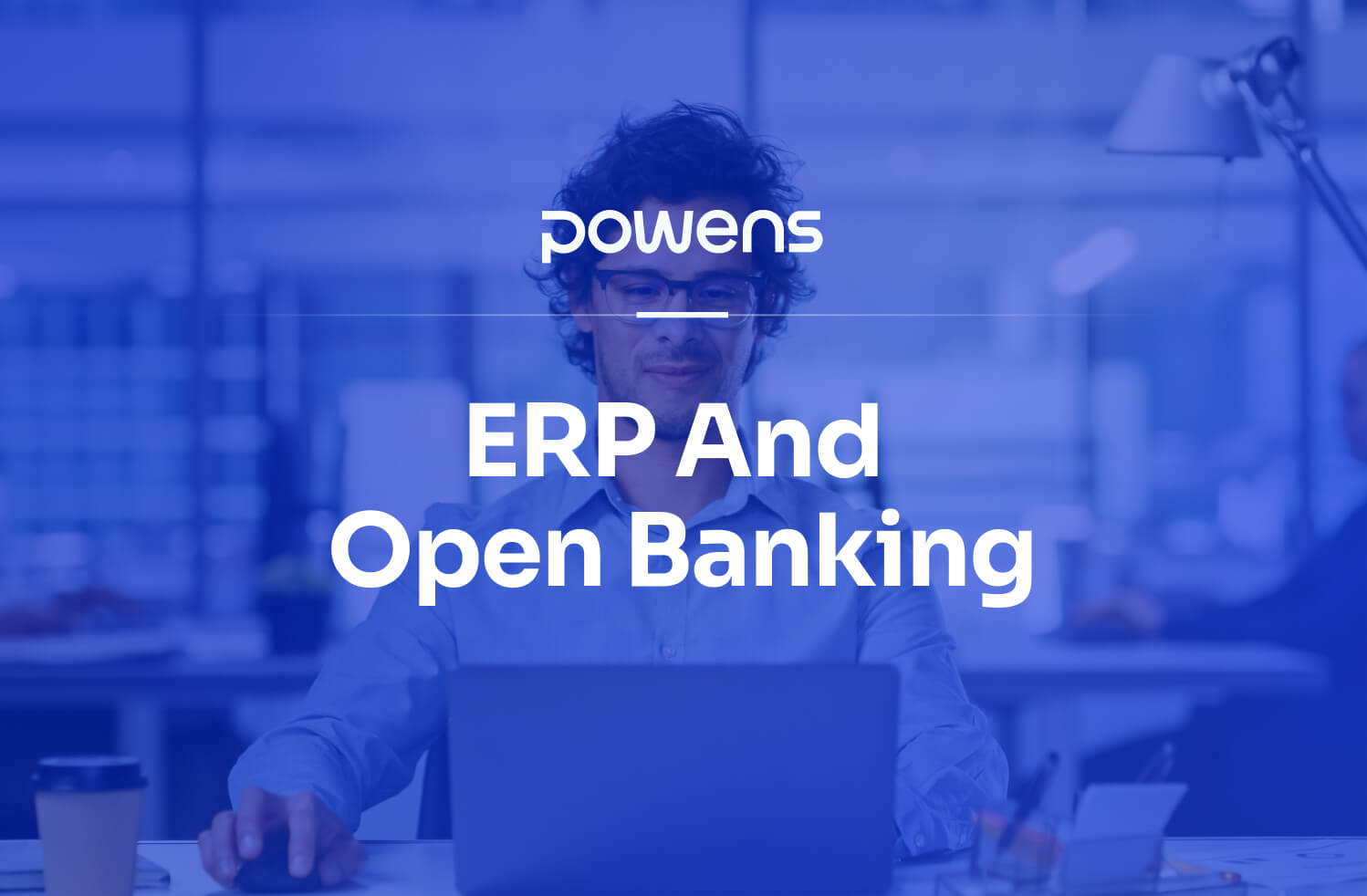
 Dec 05, 2023
Dec 05, 2023 

